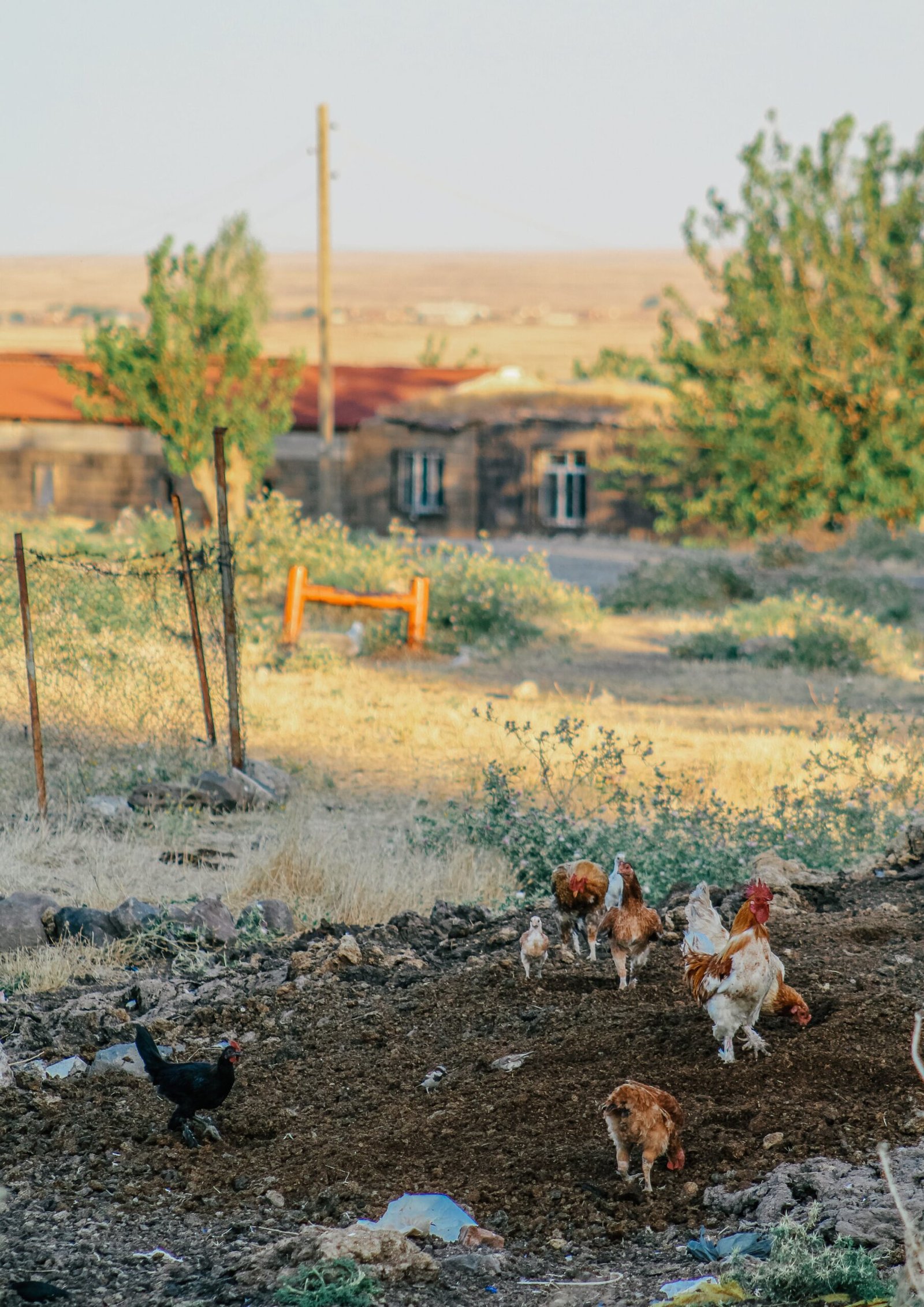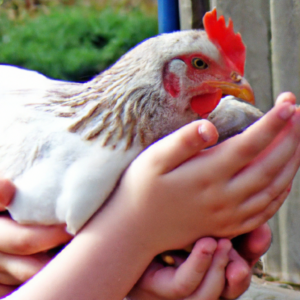
Molting is a natural process in a chicken’s life where they shed their old feathers and grow new ones. But did you know that during this time, their nutritional needs go through some significant changes? Ensuring that molting chickens receive the right nutrients is crucial to promote healthy feather regrowth and overall wellbeing. In this article, we will explore the specific dietary requirements that molting chickens require, so you can provide them with the necessary sustenance they need during this transitional phase.

Importance of Proper Nutrition during Molting
What is molting?
Molting is a natural process in which chickens shed their old feathers and grow new ones. It is a vital part of their annual cycle and usually occurs once a year. During molting, chickens go through a period of rest where their egg production decreases or completely stops. This is because their bodies are redirecting nutrients to support feather growth rather than egg production. As a result, providing proper nutrition during molting is of utmost importance to ensure that chickens remain healthy and can go through this natural process successfully.
Why is proper nutrition important during molting?
Proper nutrition plays a crucial role in supporting the health and well-being of chickens during molting. During this time, their bodies have increased energy and protein requirements to support the growth of new feathers. Additionally, essential vitamins and minerals are needed to ensure that the molting process is smooth and that chickens maintain a strong immune system to prevent any potential health issues.
Energy Requirements for Molting Chickens
Increased energy needs during molting
Molting is a physiologically demanding process that requires extra energy from chickens. Feathers are primarily made up of protein, but energy is needed to support their growth. During molting, chickens channel a significant amount of their energy towards feather regeneration and reducing egg production. Consequently, they require a higher energy intake to meet these increased demands.
Recommended energy sources
To meet the increased energy requirements during molting, it is essential to provide chickens with a well-balanced diet containing ample carbohydrates and fats. Grains such as corn and wheat, as well as high-fat seeds like sunflower seeds, are excellent sources of energy for molting chickens. These should be included in their diet to ensure they have the necessary fuel to support feather growth.

Protein Requirements for Molting Chickens
Increased protein needs during molting
Feathers are primarily composed of protein, making it crucial to provide molting chickens with sufficient amounts of high-quality protein. During molting, chickens divert much of their protein intake to feather regeneration, which can significantly increase their protein requirements compared to normal periods.
Sources of high-quality protein
To fulfill the increased protein needs during molting, it is important to offer chickens protein-rich food sources. Pellets or feeds specifically formulated for molting chickens are readily available and contain an optimal balance of amino acids necessary for feather growth. Additionally, including high-protein foods such as soybean meal, fish meal, or dried mealworms in their diet can help ensure they receive adequate protein.
Vitamin Requirements for Molting Chickens
Vitamins essential for healthy molting
Various vitamins play a vital role in supporting the molting process and overall health of chickens. Vitamin A is particularly crucial for feather development, while vitamins B and E contribute to healthy skin and feather quality. Vitamin D is also necessary for calcium absorption, which is essential for feather strength.
Sources of vitamins
Providing a diet rich in diverse fruits and vegetables can supply molting chickens with necessary vitamins. Dark leafy greens like spinach and kale are excellent sources of vitamin A, while whole grains and legumes can provide vitamins B and E. Additionally, exposing chickens to natural sunlight allows them to produce vitamin D when their skin is exposed to direct sunlight.

Mineral Requirements for Molting Chickens
Importance of minerals during molting
Minerals are essential for various physiological processes in chickens, including feather growth and bone strength. During molting, the demand for specific minerals increases, making it crucial to meet their requirements to support optimal feather development and overall health.
Recommended mineral sources
Including mineral-rich additives or supplements in the chicken’s diet can help meet their increased mineral needs during molting. Calcium and phosphorus are particularly important for feather strength, so providing oyster shells or crushed eggshells can help ensure an adequate supply. Additionally, providing a balanced poultry feed containing a wide range of essential minerals is vital for overall health and molting success.
Water Needs during Molting
Increased water requirements during molting
Water is an essential component of a chicken’s diet all year round, but it becomes even more crucial during molting. The process of feather growth and replacement requires proper hydration, and molting chickens often need to drink more water than usual to support this demanding process.
Importance of providing clean water
During molting, it is important to provide clean and fresh water for chickens to ensure optimal hydration. Clean water helps prevent potential health problems and ensures that chickens have the necessary moisture for feather growth. Regularly cleaning and replenishing their water source becomes even more critical during molting.

Feeding Strategies for Molting Chickens
Transitioning to a molt-specific diet
To support optimal molting, it is recommended to gradually transition chickens to a molt-specific diet before the molting period begins. This diet should be higher in protein, energy, and essential nutrients to meet their increased requirements for feather regeneration.
Implementing free-choice feeding
During molting, chickens may have increased appetites and altered feeding behaviors. Implementing free-choice feeding, where chickens have access to food at all times, can help ensure they can meet their nutritional needs. This feeding strategy allows chickens to self-regulate their intake and consume the necessary nutrients for successful molting.
Monitoring feed intake
Regularly monitoring feed intake during molting is crucial to ensure chickens are consuming an adequate amount of nutrients. A sudden decrease in feed intake may indicate a potential health issue or nutritional deficiency. By keeping a close eye on their feeding behavior, any issues can be identified and addressed promptly to support their overall health and successful molting.
Common Nutritional Deficiencies during Molting
Identifying and addressing deficiencies
During molting, it is important to be vigilant for any signs of nutritional deficiencies. Poor feather growth or abnormal feather quality, decreased energy levels, weight loss, and weakened immune system are all indicators that chickens may be experiencing nutritional deficiencies. Identifying these issues and consulting with a veterinarian can help address and correct any deficiencies.
Supplementing with micronutrients
In cases where nutritional deficiencies are identified, supplementation with micronutrients may be necessary. This can include adding vitamin or mineral supplements to the chicken’s diet or providing fortified treats specifically designed to support molting. It is crucial to consult with a veterinarian or poultry nutritionist to determine the appropriate supplementation plan based on the specific needs of the chickens.
Potential Health Issues during Molting
Effects of poor nutrition on molting
Poor nutrition during molting can lead to various health issues and complications. Chickens may experience delayed or incomplete feather growth, leading to compromised feather quality and increased susceptibility to extreme weather conditions. Additionally, inadequate nutrition can weaken their immune system, making them more prone to infections and diseases.
Preventing and managing health problems
To prevent and manage health problems during molting, providing a well-balanced and nutrient-rich diet is of utmost importance. Regularly monitoring their overall health, feather growth progress, and addressing any potential deficiencies promptly can help prevent and manage health problems effectively. Consulting with a veterinarian or poultry specialist is recommended to develop an appropriate health management plan.
Assessing Nutritional Success in Molting Chickens
Monitoring feather growth and quality
Feather growth and quality can serve as indicators of the nutritional success during molting. Healthy molting chickens should exhibit uniform feather growth, with feathers appearing strong, glossy, and full. By regularly inspecting their feathers and monitoring any abnormalities, you can assess whether their nutritional needs are being met adequately.
Body condition scoring
Monitoring the body condition of molting chickens can help determine if they are receiving enough nutrition. It is essential to assess their body weight and muscle mass regularly. A significant weight loss or decreased muscle mass may indicate inadequate nutrition, and adjustments to their diet may be necessary. Regular body condition scoring can provide valuable insights into their overall health and nutritional well-being.
In conclusion, proper nutrition is paramount for the successful molting of chickens. The increased energy, protein, vitamin, and mineral requirements during this period should be met through a well-balanced diet specifically formulated for molting chickens. By providing adequate nutrition, monitoring their health, and addressing any deficiencies promptly, you can ensure that your chickens go through the molting process smoothly and maintain optimal health and feather quality. Remember, taking care of their nutritional needs during molting lays the foundation for healthy and productive chickens in the future.







